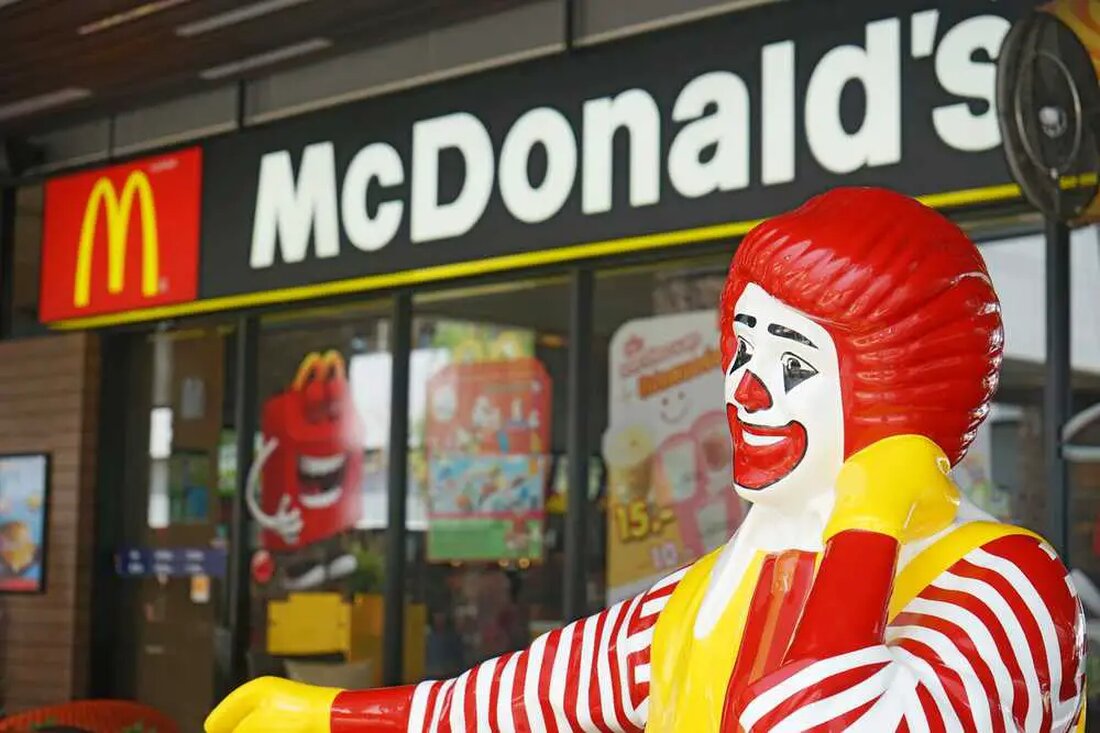Why some countries don't welcome McDonald's and the dangers of fast food
Why are there no McDonald’s in some countries? The McDonald's company is known almost everywhere in the world. The American fast food giant, originally founded as a humble restaurant in California in 1940 by Richard and Maurice McDonald, has spread its golden arches to all corners of the world. With its transformation journey from a hamburger stand to the largest fast food chain in the world, McDonald's is known for fast service, strategic marketing, affordable prices and a diverse menu. The iconic brand is present in 100 countries and has around 38,000 stores. With over 1.7 million employees, the brand serves more than 70 million daily…

Why some countries don't welcome McDonald's and the dangers of fast food
Why are there no McDonald’s in some countries?
The McDonald's company is known almost everywhere in the world. The American fast food giant, originally founded as a humble restaurant in California in 1940 by Richard and Maurice McDonald, has spread its golden arches to all corners of the world. With its transformation journey from a hamburger stand to the largest fast food chain in the world, McDonald's is known for fast service, strategic marketing, affordable prices and a diverse menu. The iconic brand is present in 100 countries and has around 38,000 stores. With over 1.7 million employees, the brand serves more than 70 million customers every day. However, it is worth noting that McDonald's is not welcome everywhere for various reasons.
Countries without a McDonald’s presence
Surprisingly, not all nations have opened their doors to the fast food giant. Whether due to political decisions, economic conditions or cultural preferences, these countries are without McDonald’s.
Montenegro
Located on the Adriatic coast, Montenegro has a rich culinary tradition that prioritizes fresh ingredients and local recipes. Despite efforts by McDonald's to establish itself there, Montenegro has retained its food culture and prefers home-cooked meals to fast food. Opposition from the government and local businesses suggests a desire to preserve authenticity. A “mobile McDonald’s” was originally created with the hope of creating a permanent footprint. Despite initial interest from locals, the government and local businesses have limited expansion plans. McDonald's then refrained from further activities on the Montenegrin market.
Yemen
Yemen, with its historically rich culture and tradition, has faced several challenges over the years. From economic instability to threats from extremists, the country's priority has always been the security and stability of its people. McDonald's has decided not to establish itself in Yemen due to the risks. Economic challenges have made the country an unviable market for the brand. Threats from extremists have made establishment even more difficult.
Bermuda
The picturesque island of Bermuda has always valued its local businesses and cultural integrity. Although the island once had a McDonald's, it could only exist for a short time due to regulations favoring local businesses over foreign chains. Laws from the 1970s banned foreign fast food establishments. A loophole allowed McDonald's to have a brief presence at a US Naval Air Station until 1995. Attempts to return to the market in 1999 were unsuccessful.
North Korea
Notoriously insular North Korea is known for its antipathy toward American companies. Despite the potential interest of citizens, the country's decisions revolve more around political and ideological reasons than commercial interests. The strong antipathy towards American companies has meant that McDonald's has been unable to establish itself. Some elites are reportedly secretly enjoying McDonald's food smuggled from South Korea.
Bolivia
Bolivia, with its rich Andean heritage and focus on indigenous values, has historically been skeptical of large corporations. The perception that global corporations often put profit over people's health and well-being has shaped Bolivia's cautious attitude toward brands like McDonald's. While McDonald's is not explicitly banned, cultural and national perceptions have created challenges. The last McDonald's restaurant closed its doors in 2002 due to widespread opposition to such businesses.
Dangers of consuming fast food
In addition to political and economic reasons, health concerns have long been associated with fast food. A variety of studies suggest that frequent consumption can lead to:
– Obesity
– Cardiovascular diseases
– High cholesterol
– Increased risk of type 2 diabetes
– mental illnesses such as depression
– Digestive problems
– Poor nutrition
– Increased risk of cancer
Numerous studies, such as those from the National Institutes of Health, have highlighted the risks of regular fast food consumption.
The value of a balanced diet
A shift in thinking about nutritional health is important. Eating balanced meals:
– Promotes psychological well-being
– Strengthens the immune system
– Reduces the risk of chronic diseases
– Improves bone health
– Optimizes digestion
– Provides necessary vitamins and minerals
Science-based research organizations such as the Harvard School of Public Health emphasize that a diet rich in fruits, vegetables, whole grains and lean protein contributes significantly to overall health.
While McDonald's remains a major player in the fast food industry, the brand's reception varies worldwide. Countries' resistance to the chain offers insight into the complex web of politics, economics and cultural preferences. Additionally, this discussion draws attention to the broader discourse around health, nutrition, and the daily choices we make. Informed choices about our diet can impact our health, life expectancy and quality of life.

 Suche
Suche
 Mein Konto
Mein Konto
